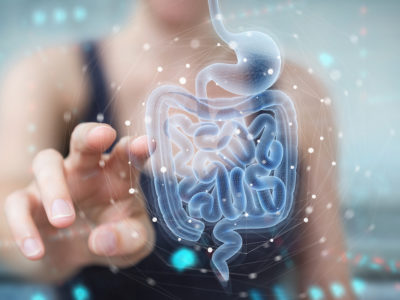Lifestyle factors such as stress, trauma, and diet can exacerbate autoimmune conditions. Learn how you manage autoimmune conditions here!
Managing Stress, Trauma, and Diet to Treat Autoimmune Conditions
Who Is Dr. Izabella Wentz?
In 2009, Dr. Izabella Wentz was diagnosed with Hashimoto’s Thyroiditis and since then, she’s been on a quest to reclaim her health. In this podcast, the two-time New York Times bestselling author shares her insights and experiences in using an integrative and functional approach to treat autoimmune disorders.
Integrative and Functional Approach in Treating Autoimmune Disorders
After her 2009 diagnosis, Dr. Wentz found that treating her autoimmune disorder with medication was insufficient. While her hormone levels stabilized, she was still experiencing acid reflux, panic attacks, cold intolerance, fatigue, and hair loss.
Unsatisfied with the results, she started using her research expertise to find alternative treatments. When she implemented lifestyle changes and started taking supplements, her symptoms improved dramatically.
Since then, she has been an advocate of combining conventional medicine with integrative and functional medicine to treat autoimmune disorders.
What is integrative medicine? This approach uses a more holistic perspective to treat disorders. Patients and practitioners partner together to examine the impact of a patient’s lifestyle on the disease.
What is functional medicine? This approach in medicine aims to develop personalized treatment plans by focusing on the root causes of disorders. It examines the interaction between the environment and the immune, gastrointestinal, and endocrine systems.
Challenges in Diagnosing Autoimmune Disorders

Autoimmune disorders are tricky to diagnose because their symptoms are often disregarded as consequences of poor lifestyle choices. Dr. Wentz herself spent a decade experiencing confusing symptoms before her diagnosis.
“We can talk ourselves out of these symptoms,” Dr. Wentz shares. Well-meaning friends and family often shrug off physical symptoms such as fatigue, persistent body aches/pains, and weight gain.
For Dr. Wentz, the red flag was hair loss. She knew something wasn’t right, and she finally went to see more specialized doctors who prescribed additional tests.
Dr. Wentz explains autoimmune disorders are actually quite common, but they often go undetected because standard screening procedures are insufficient. She believes 20% of the population (or 1 out of 5 people) may have Hashimoto’s in varying degrees.
Apart from the traditional screening procedures, Dr. Wentz recommends:
- Thyroid ultrasound
- Antibodies screening
- Thyroid biopsy (if nodules are present)
Before screening for antibodies or undergoing a biopsy, Dr. Wentz suggests getting a thyroid ultrasound. It’s less invasive than the antibodies screening procedure, and it can detect changes in the thyroid earlier.
Safety Theory and the Role of Stress
After observing thousands of people with Hashimoto’s over the years, Dr. Wentz attempts to broaden our understanding of autoimmune conditions through the Safety Theory.
She explains the thyroid gland works with the immune system to evaluate our environmental conditions. When it senses danger and high levels of stress, it sends a message that triggers an inflammatory and autoimmune response.
In the past, there was an evolutionary purpose for thyroid conditions. For example, when there was a famine, people would actually benefit from stored fat and energy conservation.
Two primary symptoms of thyroid condition are weight gain and sluggishness. So during those stressful periods when resources were scarce, the body responds by attacking the thyroid gland to help ensure survival.
While famines are less common these days, the modern body may be responding to a pseudo-famine that’s created when we fill our diets with food our ancestors didn’t eat. For instance, modern day bread is filled with chemicals and processed substances our ancestors never ate.
When you consume too many processed foods, your body will begin to think there isn’t enough real food around and your metabolism may begin to slow down. Hence, environmental stress can actually trigger an autoimmune disorder.
The Benefits of Dietary Changes
As an offshoot of the Safety Theory, Dr. Wentz believes diet plays a crucial role in treating autoimmune disorders. Dr. Wentz frames it as “using diets as medicine.”
She recommends going on a Paleo diet and gluten-free diet over vegan or vegetarian diets. As an outcomes researcher, she found that:
- 30% of patients feel better on a vegan/vegetarian diet and 28% feel worse
- 88% of patients feel better on a gluten-free diet and less than 1% feel worse
- 80% of patients feel better on a paleo diet and 3% feel worse
Personally, Dr. Wentz shares that many of her symptoms started improving within three days of giving up gluten and dairy. She no longer experienced acid reflux, irritable bowel syndrome, and, within months, her carpal tunnel in both arms went away as well.
While some patients may benefit from a vegan/vegetarian diet, most will supplement their meals by adding carbohydrates. Unfortunately, many people with autoimmune disorders also have blood sugar issues and the increased intake of carbohydrates may exacerbate them.
RELATED: January Is Thyroid Awareness Month, Here’s What This Thyroid Expert Has To Say About Toxic Load
The Benefits of Digestive Enzyme Supplements

Dr. Wentz believes there’s a more accurate way of understanding the old saying “you are what you eat.” Instead, she believes, “you are what you digest.”
Unfortunately, people with Hashimoto’s and other autoimmune disorders often have stomach acid deficiencies. This may contribute to their fatigue because their body exerts extra energy in digesting the food they eat.
This is why Dr. Wentz is a great believer in digestive enzyme supplements. Digestive enzyme supplements help you digest certain types of food.
When Dr. Wentz started taking a betaine with pepsin supplement, a supplement that aids in protein digestion, her symptoms started improving. She had more energy and her mood improved as well.
Depending on a patient’s symptoms, she may also recommend supplements that support fat digestive enzymes, pancreatic digestive enzymes, vegetable digestive enzymes, or proteolytic enzymes. When these enzyme supplements are taken on an empty stomach, they reduce food sensitivities and the antibody attack on the thyroid gland.
The Benefits of Nutritional Supplements
Apart from the digestive enzymes, Dr. Wentz also believes patients with autoimmune conditions may benefit from the following supplements:
- Thiamine B-1 is responsible for converting carbohydrates into energy, helps with digestion of proteins and fat, and supports energy production.
- Sodium helps reduce hair loss and signs of anxiety. It also prevents postpartum thyroid issues for expectant mothers with Hashimoto’s.
- Magnesium citrate’s short-term effects are improved sleep and less anxiety, headaches, constipation, palpitations, and muscle cramps. It also normalizes the appearance of the thyroid gland in the long-term.
- Zinc helps heal the gut and converts thyroid hormones into its active form.
Most patients with autoimmune conditions have nutrition deficiencies and may greatly benefit from these supplements.
The Role of Trauma in Autoimmune Disorders
From Dr. Wentz’ personal and professional experience, the onset of autoimmune disorders usually occurs at a time of great stress, such as divorce, loss of a loved one, or a severe illness within the family.
In these cases, no amount of dietary changes or nutritional supplements can solve the problem. Instead, Dr. Wentz suggests Trauma Therapy, especially for those suffering from negative emotions, miserable feelings, psychological stress, depression, stress and anxiety, and other possible mental health issues.
Dr. Wentz believes her own condition began when her college sweetheart took his own life. She was overwhelmed with survivor’s guilt and couldn’t help but think of the ways she could’ve prevented it.
It was also during this time when she started experiencing early autoimmune symptoms. She started going to therapy and completed Eye Movement Desensitization and Reprocessing (EMDR) therapy which resulted in a profound level of healing.
It’s important to find ways to manage your symptoms, but it’s even more important to treat the underlying source of your condition. Otherwise, it will continue to have an effect on your body.
The Role of Medication

Dr. Wentz is a pharmacologist by training and she doesn’t discount the utility of conventional medicine. In fact, she’s a big proponent of using medication early and before there’s lasting damage on the thyroid.
Generally, traditional practitioners will only prescribe medication when a patient’s thyroid-stimulating hormone (TSH) are elevated and they’re experiencing advanced symptoms of an autoimmune condition. Patients with normal or mild levels of TSH with early symptoms may already benefit from medication.
Introducing medication early on gives the thyroid the opportunity to rest and helps patients feel a lot better.
If you’re looking for new ways to manage your autoimmune condition, perhaps you may benefit from Dr. Wentz’s holistic, integrative, and functional approach. Stress, trauma, and diet are a few things that might be exacerbating your symptoms.
The effects of stress cannot be left unaddressed. Your mental health and physical health are on the line.
Determine your own signs of stress, pinpoint the causes of stress, and learn how to deal with your own stressors. This way, you can protect your body from attacking itself.
You May Also Like…




